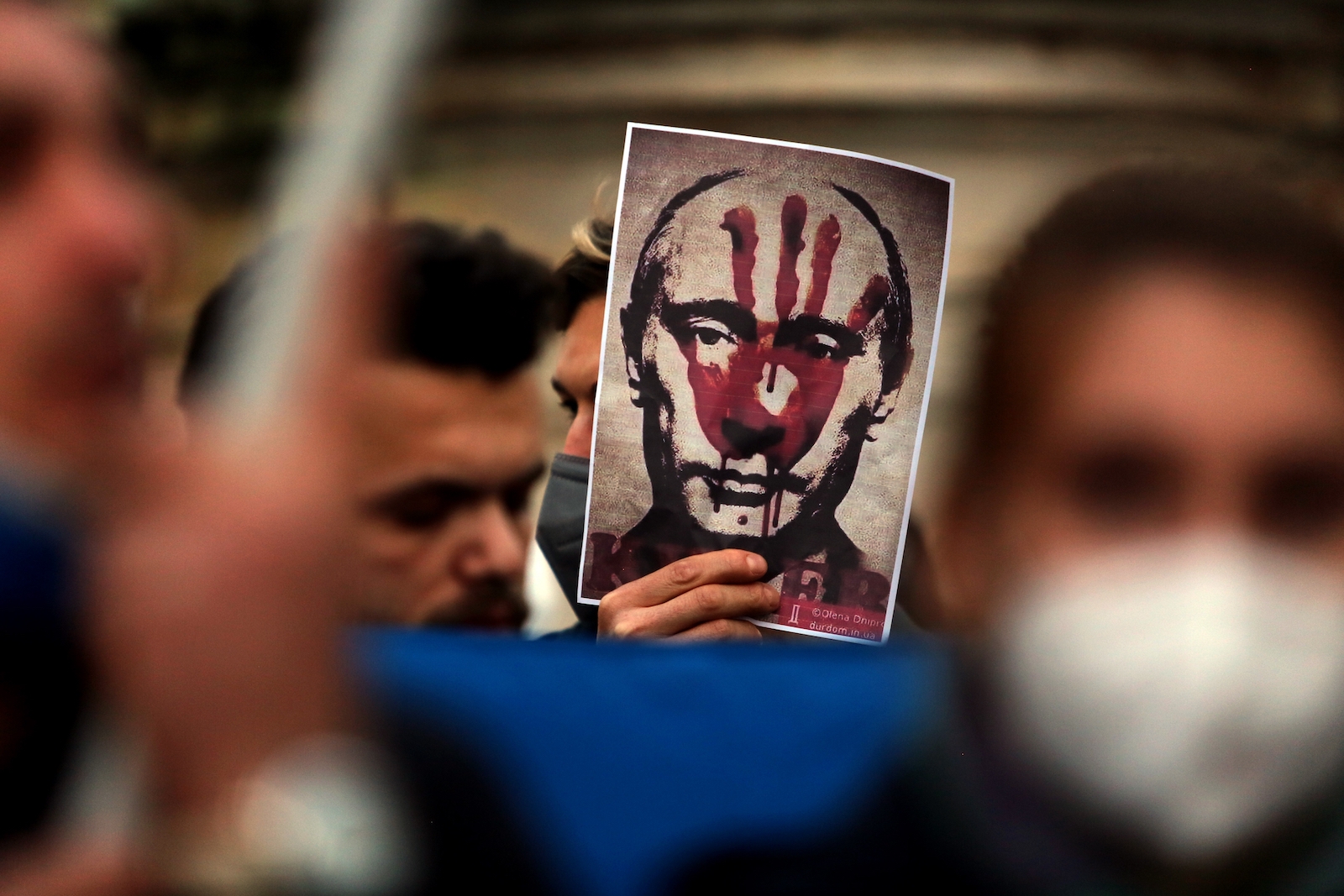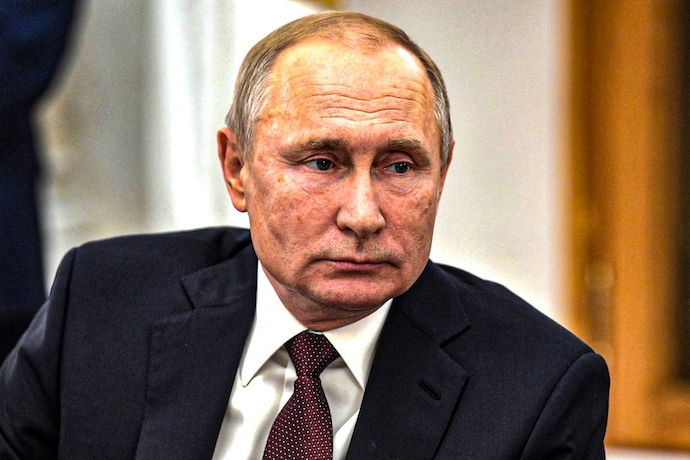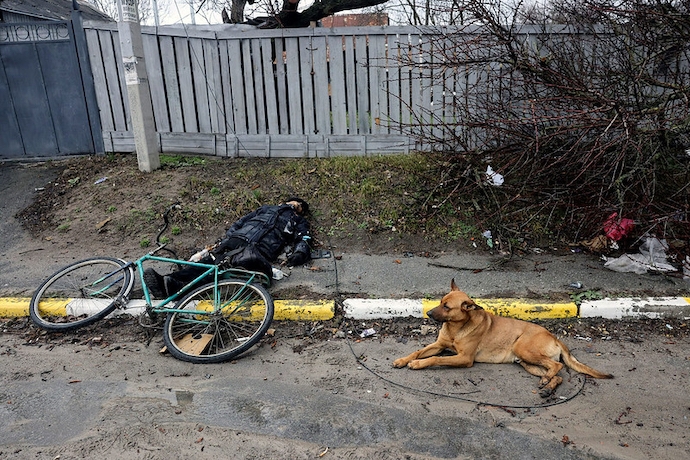
How Far is Putin Ready to Take Economic Sanctions?
As economic sanctions are being felt in Russia, how far is Russian President Vladimir Putin willing to go?
When Putin succeeded the largely unpopular Boris Yeltsin in 2000 as president of the Russian Federation, he quietly arrived in the Kremlin. A former KGB agent, Putin had only been prime minister for a year and was largely an unknown bureaucrat.
He inherited a country in turmoil. Russia was reeling from a chaotic transition to capitalism. Yeltsin’s “shock therapy” led to a sovereign default in 1998, a 5.3% drop in economic output, and a dramatic devaluation of the national currency, the ruble.
This devastation offered Putin a blank canvas to redefine his country after the collapse of the Soviet Union. In the energy sector, he took advantage of energy reserves to redraw the map and assert his anchorage very early on.
A sharp rise in energy prices and huge demand from developed and emerging economies resulted in immediate gains for the Russian state.
Between 1999 and 2008, the country’s GDP per capita rose from $1,330 to $11,635, a dramatic rise that, though uneven and prone to cronyism, helped spread the perception of middle-class prosperity.
At the same time, central government debt fell from 100.7% of GDP to 6.5% over the same period.
In 2012, the country officially joined the World Trade Organization, a moment that permanently aligned the nation with the global economy and was personally welcomed by U.S. President Barack Obama.
A decade later, the revival that took years to materialize threatens to unravel in mere months.
Western countries have imposed a series of severe sanctions on Russia following its invasion of Ukraine, to cripple its costly war apparatus and force a ceasefire.

The European Union, in coordination with its allies, has targeted everything from luxury goods to aircraft components, semiconductors, and public media.
In a shocking move, the West went after Russia’s central bank directly, cutting off its funding and blocking access to nearly half of its $640 billion in foreign exchange reserves. The ruble plummeted, inflation soared, and the stock market closed abruptly with no reopening in sight.
A swarm of Western companies, including Apple, Netflix, Ikea, H&M, and even McDonald’s, the first American fast-food joint to set up shop in the Soviet Union, fled the country under intense pressure from worried investors and outraged consumers.
The Institute of International Finance, the global financial industry association, has revised its economic forecast for Russia from 3% growth to 15% contraction in 2022.
A sovereign debt default is seen as a matter of time.
The prerogatives of a great power
Despite these seismic developments, the war in Ukraine rages on, with cities under siege, growing death tolls, and a relentless pace of destruction.
The Kremlin seems unfazed by dire warnings from Western capitals promising tougher penalties if the situation deteriorates.
“These sanctions would have been imposed anyway,” Putin has argued, in a rare acknowledgment of dire circumstances. “There are questions, problems, and difficulties, but in the past, we have overcome them and we will overcome them now.”
Putin’s obstinance leaves Western allies wondering how much pain Putin is willing to tolerate to bend Ukraine’s will to his geopolitical strategy.
According to André Gerrits, professor of international politics at Leiden University, Russians have a long tradition of “defying outside pressure” and an ingrained belief in a “strong state,” two qualities that have served to reinforce and prolong Putin’s reign.
To understand Putin’s behaviour, one must look to Russia’s imperial past, a time of conquest, greatness, modernization, and, above all, absolute power, which Putin has tried to emulate throughout his time in office.
After a short-lived attempt to embrace liberal democracy in the post-Soviet era, totalitarianism inside the country gradually increased and is today as pronounced as it was before Mikhail Gorbachev’s glasnost, notes Gerrits.
The Russian leader believes in the “special prerogatives of the great powers” and thinks that countries are inevitably left to their own devices, an aspect of foreign policy that the West tends to “underestimate,” adds Gerrits. “The anarchy of international relations has returned to Europe with a vengeance.”

The thrust of Russification
Faced with almost total censorship, Putin held firm and redoubled his contempt for the West and his spite at what he considers NATO’s assault on Russia’s sphere of influence.
Vladimir Putin and his inner circle have declared that the West is an “empire of lies,” that the sanctions are “akin” to a declaration of war and that any shipment of military support to Ukraine will be considered a [legitimate target] for retaliation.
The Kremlin has also warned that it will seize and nationalize the assets of foreign companies that withdraw from the country, including their production facilities, offices, and intellectual property.
“Ultimately, all this will lead to a strengthening of our independence, self-sufficiency, and sovereignty,” Putin has predicted.
But for a country of 146 million people that for years has been sinking ever deeper into the global economy, a sudden shift to autarky would be a formidable, onerous, and perhaps unachievable challenge.
“The room for recovery is very narrow. Russia has a very strong relationship with Western technology, software, and investment,” says Dr. Maria Shagina, a researcher at the Finnish Institute of International Affairs. “If we take that away, [Russia] will be isolated and self-sufficient. But very modest self-sufficiency.”
Shagina, whose work focuses on international sanctions, energy security, and Russia, expects the Kremlin to step up efforts to “Russify” and “repurpose” strategic industries, but believes the strategy of survival is “highly questionable” due to Russia’s entrenched dependence on Western trading partners.
As trade with the West plunges under the brunt of sanctions, Moscow may seek alternatives further south, in China and India, two huge economies that were among the few countries to abstain on a UN resolution condemning Russia’s invasion of Ukraine.
China, Russia’s biggest trading partner after the EU, has so far voiced support for Ukraine’s independence, called for “maximum restraint” and offered help in securing a ceasefire, although U.S. officials have hinted that the Asian giant may be ready to provide Russia with military and financial aid, claims that Beijing has denied.
“It’s intentionally that China remains vague, it wants the West to guess. They want to benefit from both sides, they don’t want to be clearly on one side or the other,” notes Maria Shagina. “At the end of the day, China wants stability and doesn’t want to be locked in with a partner like Russia.”
An EU-made lifebuoy
As international observers rack their brains trying to figure out which side China will lean towards, Moscow can count itself lucky to have an extra lifeline – or rather a loophole – closer to home.
Last year, the European Union spent €98.9 billion to buy fuel from Russia, or 62% of total imports. The energy-hungry Union bought 155 billion cubic meters (bcm) of gas, paying at least €15 billion, according to figures provided by Eurostat which, for confidentiality reasons, does not give a picture complete of the situation.
Oil and gas exports account for around 40% of Russia’s federal budget, which includes national defense spending, which is estimated to be worth $61.7 billion in 2020.
The European Union has long been aware of its heavy dependence on Russian oil and gas, but it has done little to alleviate this dependence. Following the sanctions imposed on the Kremlin in 2014 over the annexation of Crimea, which the bloc strongly condemned and never acknowledged, EU purchases of Russian gas actually increased.
The issue of energy imports has become so glaring and problematic that it has somehow eclipsed the other sanctions that the EU has imposed on Moscow in record time and with extraordinary unity. Washington’s decision to ban all Russian energy imports has only put the EU in a more delicate position.
Despite pressure from the United States, Ukraine, and its own eastern member states, the bloc has so far refused to directly target Moscow’s most profitable source of income. German Chancellor Olaf Scholz said energy imports were of “essential importance” for people’s daily lives.
According to Jeffrey J. Schott, a senior fellow at the Peterson Institute for International Economics, Vladimir Putin thus has a “vital feeding tube” to support his flagging economy. Western sanctions “are clearly putting the Russian economy into a tailspin and will have corrosive effects on Russian economic growth in the short to medium term. But the immediate impact is unclear,” Schott told Euronews. “The economic pain won’t be decisive for some time. If you don’t increase restrictions on the oil and gas trade, it would give the Russian military time to do more damage to innocent civilians in Ukraine. So from a humanitarian point of view, you have to cut ties much faster.”
To make matters worse, soaring energy prices that have haunted consumers since the beginning of autumn have further increased the bill that Europeans pay daily to Moscow.
Since the invasion of Ukraine began on February 24, the EU has spent more than €13 billion on Russian fossil fuels, including €6 billion on gas, according to a tracking tool set up by the Center Research on Energy and Clean Air (CREA), an independent research organization.
Brussels recently unveiled an ambitious roadmap to cut Russian gas imports by two-thirds before the end of the year, but leaders failed to agree on a final deadline to wean them off completely.
“On the one hand we have these financial sanctions which are very harsh, but on the other hand we are actually supporting and financing Russia’s war by buying oil, gas, and other fossil fuels, so the situation is not good,” Finnish Prime Minister Sanna Marin admitted at a meeting of European leaders.
Putin’s one-dimensional but lucrative economic model is, for now, spared total ruin.
As the country’s remaining sectors are hit with sanctions from every possible angle and consumers face empty shelves and exorbitant prices, the state is assured of a more modest but reliable source of revenue, capable of satisfying its most pressing needs.
This lifeline bodes ill for hopes of surrender. Hopes of a popular uprising that could force Putin to give up the fight were quickly dashed as the noose on society tightened, with protesters arrested for simply waving signs in the streets.
Only an uprising by the oligarchs, the powerful and secretive billionaires who back Vladimir Putin’s regime, could change the president’s mind, the three experts noted. But such a mutiny remains to be seen and it is unclear when or if it will take place, despite the barrage of travel bans, asset freezes, and luxury bans the West has imposed on the elite.
“There is a possibility that the Russian economy will reinvent itself,” says Jeffrey J. Schott. “But it’s hard to see how that could happen under a regime led by Vladimir Putin.”

